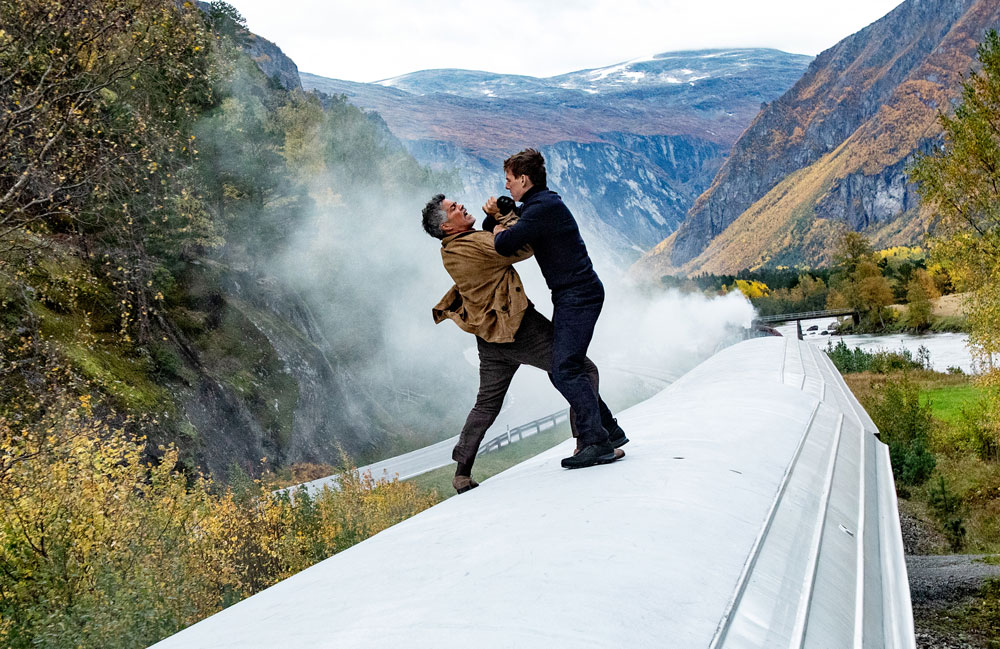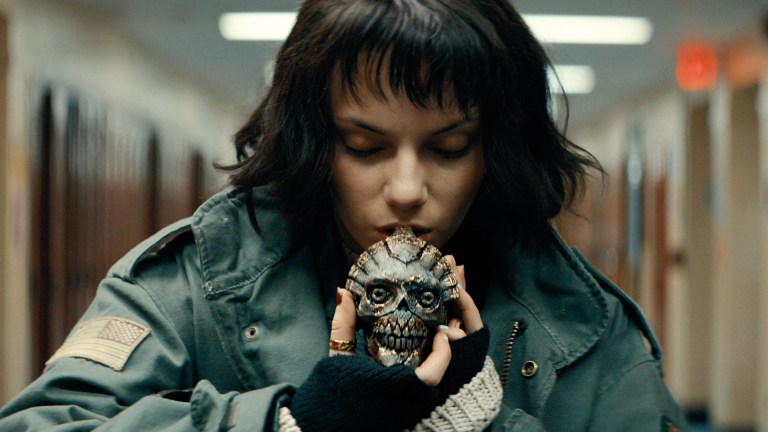Christopher McQuarrie – the screenwriter turned director who has overseen the last three Mission: Impossible movies – is a generous raconteur happy to answer filmmaking queries on social media and podcasts. He is fond of saying that making a Mission: Impossible movie is just like an actual impossible mission: you and your hand-picked team led by Tom Cruise start with a carefully conceived plan; that plan immediately goes out the window; everyone is forced to scramble, improvise, vamp, tap-dance; then Cruise does a big terrifying stunt (and maybe breaks his ankle).
The way McQuarrie cheerfully describes the constantly mutating Mission production process it seems a miracle that this franchise has not just persisted but thrived on his watch, always going bigger but somehow also feeling sleeker and more stylish.
After 2018’s headlong Fallout the latest instalment, Mission: Impossible – Dead Reckoning Part One (AKA Mouthful: Impossible), feels like the first time this seat-of-the-pants approach has not fully paid off. There were discomfiting moments in Fallout – notably dream sequences that curdled into nightmares – but they were in keeping with that film’s sweeping sense of paranoia and dread.

Five years on, Dead Reckoning has lost some innate sense of Mission rhythm. The usual cinematic symphony of high-wire tension and bedlam that swirls around Ethan Hunt (Tom Cruise) and his capable off-the-books allies (Rebecca Ferguson, Ving Rhames and Simon Pegg) feels a little off-balance and unwieldy. Perhaps it is a byproduct of snapping a story in half like a Kit-Kat – Part Two is due next June – but between barnstorming action beats, Dead Reckoning hiccups where it should glide.
Get the latest news and insight into how the Big Issue magazine is made by signing up for the Inside Big Issue newsletter
What it does have, by accident or design, is an antagonist that is remarkably of the moment. A lengthy opening flashback on a Russian sub establishes a rogue military AI – the Entity – that decides to turn on its masters and quietly take over the world. If that seems like pushing the series fully into science fiction, the Entity’s subtle approach involves scuttling all the tools of modern espionage. When fighting an intangible enemy who can clone comms channels, sabotage satellite feeds and rewrite classified databases in real time, Hunt and his team must go back to old-school guts and gumption, which feels like a conscious nod to the franchise’s pre-digital 1960s TV roots.









